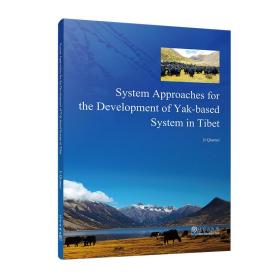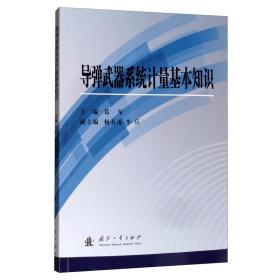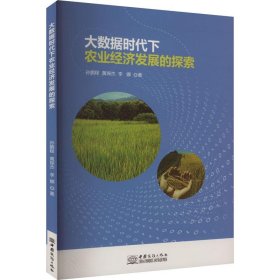
SystemApproachesfortheDevelopmentofYak-bas
全新正版未拆封
¥ 27.03 4.5折 ¥ 60 全新
库存2件
作者Ji、Qiumei 著
出版社气象出版社
出版时间2018-12
版次1
装帧平装
上书时间2024-10-02
- 在售商品 暂无
- 平均发货时间 50小时
- 好评率 暂无
- 最新上架
商品详情
- 品相描述:全新
图书标准信息
- 作者 Ji、Qiumei 著
- 出版社 气象出版社
- 出版时间 2018-12
- 版次 1
- ISBN 9787502969066
- 定价 60.00元
- 装帧 平装
- 开本 16开
- 纸张 胶版纸
- 字数 100千字
- 【内容简介】
-
本书用系统论相关方法,以草地为基础,以生物的能量流动为主线,以模型、遥感和地理信息系统等为技术支撑,以西藏的主要家畜牦牛为例,对发展西藏畜牧业生产系统进行了探索性的研究,为放牧家畜动态研究提供了一种新颖的理念和方法。
- 【作者简介】
-
姬秋梅,女,藏族,博士,毕业于中国科学院地理科学与资源研究所,2002年留学回国,西藏自治区农牧科学院研究员, “新世纪百千万人才工程国jia级人选”,“全国杰出专业技术人才”,享国务院特殊津贴专家,国家畜禽遗传资源委员会牛专业组委员,主要研究方向为高原资源科学及畜牧学。先后承担了国家科技支撑计划项目、农业部公益性行业专项、西藏自治区重点农业项目等20余项,选后发表论文50余篇。获省部级科技一等奖2项,二等奖4项,三等奖4项,个人先后获得“中国青年女科学家奖”,“全国优秀科技工作者”,全国“三八红旗手”(2006年),中国科学院第四届青藏高原青年科技奖等荣誉称号。
- 【目录】
-
CONTENTSPreface…………………………………………………………… ……………………………..ⅰChapter 1................................................................................................................................... 1O
ur State of Knowledge: Yak Research in China................................................................. 11.1 Background.......................................................................................................... 11.2
Advances in various fields of yak science............................................................ 2References.................................................................................................................. 11
Chapter 2................................................................................................................................. 16
Major Production Systems in Tibet..................................................................................... 162.1 Background........................................................................................................ 162.2
Materials and methods........................................................................................ 172.3
Results and discussion........................................................................................ 192.4
Main issues and challenges................................................................................. 412.5 Conclusions........................................................................................................ 43References.................................................................................................................. 45
Chapter 3................................................................................................................................. 47
Assessing Dry Matter Availability in Tibetan Grasslands Using Ground-Level Remotely-Sensed Data 473.1 Background........................................................................................................ 473.2
Materials and Methods........................................................................................ 503.3
Results and Discussion....................................................................................... 523.4 Conclusions........................................................................................................ 61References.................................................................................................................. 62
Chapter 4................................................................................................................................. 64
Mapping and monitoring Tibetan grasslands using............................................................. 644.1 Background........................................................................................................ 644.2 Objectives........................................................................................................... 664.3
Material and methods......................................................................................... 664.4
Results and Discussion....................................................................................... 734.5
Conclusion and recommendation....................................................................... 88References................................................................................................................. 89
Chapter 5................................................................................................................................. 94
Modeling yak Production Systems Under........................................................................... 94
Grazing Condition in Tibet................................................................................................. 945.1 Background........................................................................................................... 945.2
Model Development........................................................................................... 955.3
System analysis.................................................................................................. 975.4
Data collection.................................................................................................. 1015.5
Algorithm of the model.................................................................................... 1115.6
Programming and code of the model................................................................ 1255.7
Verification of model outputs........................................................................... 1285.8 Validation......................................................................................................... 1315.9
Documentation of the model............................................................................ 1375.10
Inferences: Simulating the productivity of yaks under improved nutritional conditions 1395.11 Conclusion..................................................................................................... 150References................................................................................................................ 151
— 没有更多了 —












以下为对购买帮助不大的评价